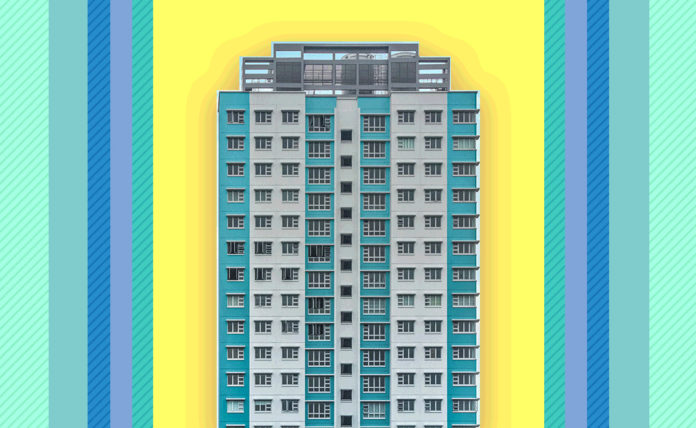

Smart Home Benefits for Multiple Dwelling Units

A major trend in building multi-dwelling units (MDUs) is increased awareness and interest in smart technology systems that provide better asset management and visibility across managed properties. These smart apartments use programs powered by data and technology to improve efficiency, management and operations. IoT can step in to provide solutions including power distribution, safety and security features, improved HVAC systems and smarter appliances. They can also support automation and integrated services that benefit property managers, building owners and residents.
Smart home technology can improve many aspects of daily life and provide a comprehensive, comfortable and even healthy living experience. The smart home market is expected to reach $137 billion by 2023, and while most of this growth is in single-family homes, the MDU market has really started to take off. IoT automation is mainly implemented in key areas such as resource management for energy and water control to reduce utility costs and improve sustainability. Happy tenants can also be a byproduct of installing smart technology in an MDU.
smart home technology inMDUAdvantages
- Improved sustainability.
Multi-unit buildings consume an incredibly high amount of energy, accounting for 40% of total U.S. national consumption, primarily due to heating and cooling. Sustainability factors are both an exercise in minimizing a building’s carbon footprint and an excellent way to reduce the considerable costs associated with tenants’ energy use.
Installing connected utility submeters is one way to improve sustainability. By connecting sub-metering technology, buildings can analyze tenant energy usage data for unit-to-unit reporting. In addition, smart water metering devices include automatic and remote water shutoff capabilities, providing tenants and property managers the ability to shut off unit water supply in the event of a leak. This reduces the potential for water waste and corresponding water damage.
Installing state-of-the-art HVAC technology that reports real-time insights and data will reduce costs by enabling more informed management decisions. Sensor technology can monitor energy activity and ensure cooling and heating functions are directed appropriately, reducing a building's energy use.
- Actionable insights.
Connected devices are equipped with real-time data, providing insights into gas, electricity, water usage and more. This data enables property managers to monitor utility consumption in real time, which allows them to identify opportunities to reduce waste and improve energy efficiency.
Some automated devices take this approach a step further by providing preventive maintenance beyond initial insight. This provides property managers with the tools to maintain and develop more effective operational plans from a broad perspective.
- reduce risk.
There is a long list of potential risks to MDUs, including mechanical failure, unit equipment failure, tenant activity, and more. These risks are incredibly high and have the potential to put the lives and property integrity of residents at risk.
Water damage is by far the most common cause of property loss, with a single incident having the potential to displace tenants and cost thousands or even millions in damages. Smart home technology can stop water damage before it occurs with sensors that shut off valves when a leak is detected, or can even shut off the entire water supply if necessary and then notify you of the problem. Devices such as the Sentry Leak Defense System and sensors from Eddy Technologies offer these protective smart technologies.
- Happier tenants.
Keeping residents happy is the most important thing, however, this can be a difficult thing to do. Dealing with tenant complaints is a common task that property managers deal with on a daily basis, and smart home technology can help alleviate these issues.
One of the more frequent tenant complaints is about the temperature in their units. With smart thermostats, tenants can personally control the air conditioning and heating in their units, significantly reducing such complaints. Tenants will also have better overall protection – water sensors and security systems can help them stay safe.
Smart Apartment–Invest in a smarter life.
Implementing smart home technology in an MDU typically yields ROI in two primary ways: through operational efficiencies and higher building valuations. Daily costs will be reduced by reducing energy use and reducing the chance of disaster. Smart apartments may end up having higher valuations than non-smart buildings, making it an investment decision as well. High-tech smart technology with superior features can help you get the most out of your MDU, giving you an edge in attracting potential tenants.
Smart technology gives managers greater control over their properties and lowers the fees they need to pay, thanks to increased operational efficiency, resource management and improved prevention tools. Guests will receive a better living experience and customer service as issues can be resolved quickly with simple changes to equipment. As demand for smart technology in MDUs continues to grow, residents will be looking for a building that goes out of its way to provide them with the best living experience.
Original author: Yonomi
This article is from a translation. If you want to reprint, please obtain authorization from this site first.
